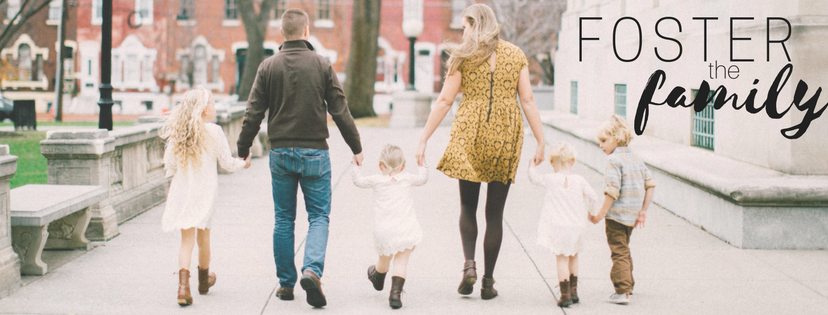We love our children hard, and we are doing our very best. If you have questions, ask. If you’re confused, spend some time & learn. If you’re concerned, pray & love & be there for us. Our children need you, we need you.
Give up Control
When we relinquish control, it’s not to a broken system, not to a flawed decision maker. We relinquish control to God.
If I Perish, I Perish
If something is worth it—if the people involved are worth it, the God we serve is worth it—then we face it straight on and speak in faith and surrender.
Foster Care is about Family
Foster care is about family. It’s about welcoming a child into your family. It’s about—in one way or another—welcoming another family into your family.
A Call to Foster
Not everyone is called to be a foster parent. Not everyone’s supposed to adopt. But there may be some who—if they spent more time leaning into the small and quiet “calls”—would realize there’s a calling.
Rejecting the Either + the Or and Choosing Both
When did we start believing that being for one means being against the other? I reject the either and the or. I choose both.
Loving Broken People
I believe that part of this job is fostering the whole family, and I’m committed to doing it, even when it’s hard.
Trauma Training Isn't Enough
Sometimes I can’t handle the hour long meltdowns or the what’s-even-going-on-here trauma behaviors. So I hold it together and say the right things and make everyone alright. And then I hit my breaking point.
I Get Too Attached
It has to be the reasoning I hear most often from would-be foster parents: “I could never do that. I would get too attached.” Well, that makes two of us. Attachment is the whole point of this, after all.
Mother's Day for the (Foster + Adoptive) Mothers
To the woman who has stepped into a child’s life and story and heart. Who has decided to love, when she had no reason to have to. Who has adopted the role of mother, for a short time or forever...
Back + Forth Journal: Building a Relationship with Biological Parents
One of the most helpful tools I’ve found to build a relationship with my foster children’s biological parents is a back and forth journal. It’s a pretty simple idea, but many people feel intimidated by the idea of communicating with biological parents and are searching for direction.
I Say No To Placements All The Time
As time has gone on, I’ve gotten more acquainted with--if still not totally comfortable with--saying no. I’ve learned that knowing when to say yes and when to say no is one of the most important parts of doing this thing well.
That Dirty Word: Respite Care
The whys of a family’s decision to place a child in respite care is endless, beyond a simple explanation, and no one else’s business.
Foster parent: God is in the wait.
If you are a foster parent, you will learn patience. You can learn it by kicking and screaming and complaining and worrying. But you will learn it just the same.
Losing Heart • When What I See Isn't Enough
Throughout my journey as a foster parent, I’ve often been confused by what I’ve seen play out in my life and the lives of the children I love. But I don’t focus on that.
Foster Care + Adoption Books For All the People
I’ve compiled a list of my very favorite foster care + adoption related books for all the people on your list (and, you know, yourself). There’s one for everyone…
When I Don’t Love My Foster/Adopted Child
Maybe we shared things that you’ve thought before, said things you’ve been too afraid to say. If you’ve struggled as we’ve struggled, here’s what I want you to know…
When We Know Their Names, They're Harder To Ignore.
It's National Foster Care Month. A time when we have conversations about foster care. A time when we pause and pay attention to these children and their needs. A time when we consider what it all has to do with us.
This Sucks.
Maybe my "this sucks" mantra sounds un-Christian. When I say, "This sucks," and I say it to Him, it's said like a prayer. A faith-filled acknowledgement that though this isn't how it should be, He is in it all.
In Defense of Foster Parenting
Foster care is, at its core, a bridge. Back to first family or on to forever family. Foster parents must never--not ever--be shamed or condemned or criticized when they do not adopt their foster children. Adoption is not in our job description.




















